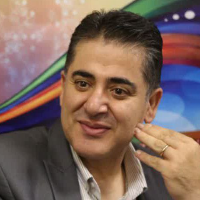The Impact of Family / School-Based Problem Solving Training on Problem-Solving Styles of Elementary Students
Author(s):
Article Type:
Research/Original Article (دارای رتبه معتبر)
Abstract:
Background and Purpose
Problem solving is one of the structured cognitive programs that provides a range of efficient responses to deal with the problematic situations of life. The purpose of this study was to determine the effect of family / school-based problem solving training on problem-solving styles of elementary students.
Methods
The design of this study was experimental and pre-test-post-test-follow-up with the control group. A sample of 120 students were selected using random sampling method and were randomly assigned to experimental (60 subjects) and control (60 subjects). After educating 10 two-hour sessions for parents and teachers, the experimental group received a family/school oriented problem-solving program for three months. A short version of the social problem solving (D’Zurilla, Nezu & Maydeu-Olivares, 2004) was used to collect data in three forms of students, parents, and teachers.
Results
According to the opinions of the three groups of students (participants), parents, and teachers, the results showed that in the experimental group there was a significant difference between the scores of pretest and posttest scores on the subscales of problem solving, but there wasn't a significant difference between the scores of posttest and follow-up on the subscales of problem solving (P ≤ 0.05)
Conclusion
Family/school problem-solving training is effective on student problem solving styles, so using this method as a preventive program for parents and teachers in adopting an effective problem-solving style for students, is important.Language:
Persian
Published:
Quarterly Journal of Child Mental Health, Volume:6 Issue: 1, 2019
Pages:
14 to 27
https://www.magiran.com/p1977828
سامانه نویسندگان
مقالات دیگری از این نویسنده (گان)
-
Designing and Validating of an Educational Model of the Flourishing Couple: A Qualitative Study
Sahar Rezaei, Mahmood Gudarzi*, Keyvan Kakabraei
Middle Eastern Journal of Disability Studies,


